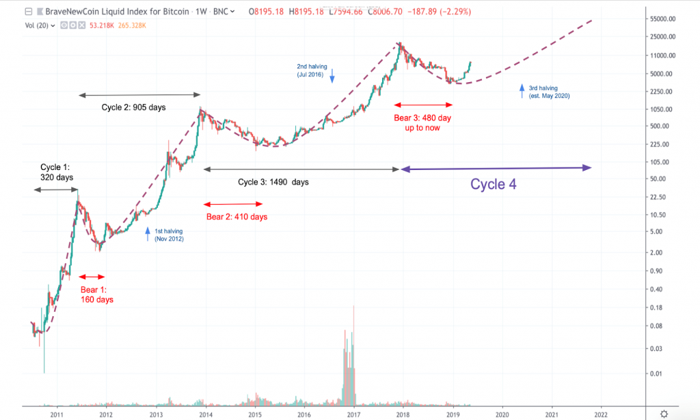Canada digital assets are at the forefront of an unprecedented economic shift, capturing the attention of policymakers and citizens alike. As the country prepares for its upcoming federal election, discussions around cryptocurrency regulations Canada continue to gain traction among both voters and stakeholders. The growth of blockchain development Canada has been remarkable, fostering a vibrant ecosystem that embraces innovation and creativity. With millions of Canadians actively participating in the Canada crypto market, the demand for coherent policies and frameworks is louder than ever. This moment presents a unique opportunity for Canadian fintech innovation to thrive, as stakeholders advocate for supportive regulatory environments that can facilitate responsible integration of digital currencies into the broader financial system.
As Canada navigates the evolving landscape of digital currencies, the nation’s approach to virtual assets is gaining international attention and commentary. Emerging concepts like decentralized finance and blockchain infrastructure are being increasingly recognized as crucial components of the future financial landscape. The engagement of young Canadians with cryptocurrency highlights a significant shift in economic perspectives, where alternative financial products are being accepted with enthusiasm. This new era of innovation reflects a broader trend in financial technology, with the potential for Canada to emerge as a leading hub for digital asset developments. By establishing clear regulations and fostering a supportive environment, Canada can capitalize on its strengths in the digital economy and establish itself as a leader in the Web3 movement.
Canada’s Emerging Role in Digital Assets
As the digital landscape continuously evolves, Canada stands at a pivotal crossroads where it has the potential to emerge as a leader in the digital assets sphere. With a government increasingly responsive to public demand for cryptocurrency integration into the economy, the landscape looks promising. The success of ventures like the Ethereum project, co-founded by Canadian Vitalik Buterin, showcases the country’s capacity for blockchain innovation, positioning Canada as a hotbed for digital asset development.
Moreover, the proactive steps taken by authorities such as the Ontario Securities Commission to formulate a regulatory framework for cryptocurrency trading platforms indicate a commitment to fostering a secure environment for both investors and innovators. As Canadian fintech innovation thrives, the integration of blockchain in various sectors, coupled with supportive policies, can yield economic advantages and solidify Canada’s reputation on the global stage.
The Voter Influence on Cryptocurrency Policy
Recent surveys demonstrate a strong inclination among Canadian voters towards embracing digital assets, with 60% supporting government collaboration with industry professionals to craft effective cryptocurrency regulations. This trend reflects a wide-reaching consensus among a diverse voter demographic that sees potential in cryptocurrencies not just as speculative investments but as integral components of a modern economic ecosystem. The rising awareness and engagement in the digital asset space could push policymakers to prioritize development aligned with public sentiment.
This engagement has the potential to shape future political platforms as candidates campaign on pro-crypto agendas. Leaders who acknowledge and support the burgeoning pro-crypto community can leverage these insights to create a favorable narrative around digital assets, ensuring that their strategies align with the electorate’s aspirations for a transparent and innovative financial landscape.
Insight into Blockchain Development in Canada
Canada’s rich history of blockchain innovation underscores its role as a trailblazer in this domain. By creating initiatives like Alberta’s fintech sandbox, the country nurtures innovative startups that explore new blockchain solutions. This environment promotes creativity while ensuring that emerging technologies comply with necessary regulations, fostering a safe space for both innovators and users. Such initiatives are vital for developing a competitive edge in Canada’s digital economy.
Additionally, the government’s embrace of blockchain technology reflects a forward-thinking approach to enhancing operational efficiencies across various industries. By incorporating blockchain into Canada’s financial infrastructure, we could see a transformation that not only modernizes the sector but also protects consumers—essential characteristics in an era defined by digital transactions. It is crucial for Canada to continue to support blockchain development to maintain its status as a global leader in this rapidly transforming space.
Navigating the Canadian Crypto Market
As the Canadian crypto market evolves, stakeholders from various sectors are watching closely to see how regulatory frameworks develop. The integration of legislative measures like the proposed Stable Act of 2025 in the U.S. has sparked discussions on establishing similar protocols in Canada. The optimal regulatory approach would balance investor protection with the need for innovation, ensuring that Canada remains competitive while also inviting global crypto businesses into its marketplace.
Moreover, insights from industry leaders suggest that a well-structured regulatory framework can empower citizens by creating a transparent environment around cryptocurrency investments. The potential for lower transaction costs, quicker remittances, and increased accessibility for underbanked communities offers tangible benefits that can solidify public trust in the digital economy. For Canada to capitalize on these benefits, continuous investment in regulatory development and education is essential.
The Impact of Global Trends on Canada’s Digital Strategy
Global trends significantly influence local strategies, and Canada’s readiness to adopt them could define its future in the digital economy. With the European Union’s MiCA framework setting a precedent for cryptocurrency regulations, Canada has a unique opportunity to craft legislation that resonates on a global scale. By addressing concerns regarding security, consumer protection, and the facilitation of innovative technologies, Canada can create a framework that both attracts international investment and fosters local talent.
Additionally, as the U.S. ramps up its crypto regulatory efforts, Canada can benefit by positioning itself as a stable alternative for businesses seeking clarity and security. By advancing policies that promote innovation while protecting consumers, Canada can draw global enterprises that view Canadian regulations as favorable for their operations. This strategic positioning could enhance Canada’s status as a leading player in the digital asset landscape.
The Future of Canada’s Financial Ecosystem
The future of Canada’s financial ecosystem is intricately linked to how well the country adapts to and embraces digital assets. With growing public interest in cryptocurrencies, there is a pressing need for the government to develop comprehensive strategies that encapsulate the potential of digital currencies as a mainstream financial tool. The call for a more accessible and inclusive financial landscape speaks to the power of digital assets in bridging gaps and enhancing financial literacy across various demographics.
By prioritizing digital asset education and fostering an environment that cultivates fintech innovation, Canada can harness the benefits of cryptocurrencies. This commitment not only has the potential to reshape how Canadians interact with finance but also solidifies the notion that digital assets can improve economic resilience in times of uncertainty. A forward-thinking approach could make Canada a leader in this new financial era.
Understanding Cryptocurrency Regulations in Canada
As the crypto market in Canada matures, understanding the various regulations surrounding digital assets becomes increasingly crucial. The Canadian government has made strides in defining the legal landscape for cryptocurrency and blockchain development, recognizing the need for clear guidelines that protect both consumers and the integrity of the market. Initiatives launched by bodies like the Canadian Securities Administrators aim to create a stable operating environment for crypto exchanges and project teams.
Moreover, as voters push for enhanced clarity in regulations, policymakers must respond with frameworks that are not only protective but also supportive of innovation in emerging technologies. A well-defined regulatory environment can foster investor confidence and ultimately bolster the growth of Canada’s digital asset market.
The Role of Community and Industry in Crypto Advocacy
Community engagement plays a significant role in advocating for cryptocurrency regulations. Initiatives like Stand with Crypto Canada illustrate the industry’s commitment to fostering dialogue between the public and policymakers. By emphasizing the economic benefits of clear regulations, these campaigns aim to educate voters about the positive contributions of cryptocurrencies to the broader economy and societal advancement.
In addition, unified efforts from industry stakeholders can amplify their voices in policy discussions. Campaigns encouraging collaboration between crypto businesses and government officials could lead to more informed regulatory decisions that reflect the collective interests of all parties involved. This community-driven approach could prove vital in shaping a future where Canada effectively utilizes its resources and talent in the digital asset arena.
Potential Challenges in the Digital Asset Space
While Canada appears poised to embrace digital assets fully, several challenges must be addressed to harness their potential effectively. Regulatory uncertainty remains a significant hurdle for both investors and companies seeking to participate in the crypto market. Without clear guidelines, innovation may stagnate, leading to missed opportunities for economic advancement and technological breakthroughs. Addressing these regulatory concerns swiftly will be key to maintaining investor confidence.
Moreover, combating misinformation and skepticism concerning cryptocurrencies is essential for ensuring widespread acceptance. As highlighted by critics in the political sphere, the need for adequate consumer protections cannot be understated. Ensuring that consumers are well-informed and understand the risks involved in digital asset investments will remain pivotal as the market continues to develop.
Charting a Path Forward for Canada’s Digital Economy
Charting a path forward for Canada’s digital economy requires a collaborative effort from all stakeholders. Policymakers, industry leaders, and community advocates must work together to devise strategies that promote the responsible integration of digital assets into the financial system. By aligning regulatory measures with the needs and aspirations of citizens, Canada can position itself as a leader in the global digital asset landscape.
A well-structured strategic approach can lead to numerous benefits—ranging from job creation to enhanced financial services and increased global competitiveness. Engaging the electorate in discussions surrounding cryptocurrency regulation will ensure that the policies developed reflect the public’s concerns and priorities while fostering a progressive environment for innovation.
Frequently Asked Questions
What are the current cryptocurrency regulations in Canada?
Canada’s cryptocurrency regulations are designed to provide clarity and protection within the digital asset space. The Ontario Securities Commission, along with the Canadian Securities Administrators, has established specific guidelines for crypto trading platforms. These regulations focus on investor protection while promoting the growth of the Canada crypto market through responsible innovation.
How is blockchain development in Canada progressing?
Blockchain development in Canada has seen significant advancements, driven by innovative companies and supportive policies. Initiatives such as Alberta’s fintech sandbox aim to foster blockchain innovation. Canada is also home to influential projects like Ethereum and NFT platforms from Vancouver’s Dapper Labs, reinforcing its position as a leader in blockchain technology.
What role is Canada playing in the global Web3 ecosystem?
Canada is becoming increasingly influential in the global Web3 ecosystem, with a strong emphasis on developing digital assets and decentralized finance. The Canadian government and industry leaders advocate for robust policies that facilitate growth in the Web3 space, leveraging the nation’s tech talent to create a competitive advantage in the global market.
What impact do digital assets have on Canadian fintech innovation?
Digital assets significantly enhance Canadian fintech innovation by providing new tools for financial inclusion and efficiency. Innovations driven by cryptocurrencies and blockchain technology are reshaping traditional banking models, leading to quicker transactions and greater accessibility for underserved communities in Canada.
Are Canadians generally supportive of cryptocurrency and digital assets?
Yes, public opinion in Canada increasingly supports cryptocurrency and digital assets. Surveys indicate that a majority of Canadians favor government collaboration with industry experts to create regulations that balance innovation with consumer protection. This growing pro-crypto sentiment reflects a shift toward embracing digital finance as a key component of Canada’s economic future.
How can Canada become a leader in the digital assets space?
To establish itself as a leader in digital assets, Canada must implement clear regulatory frameworks that foster innovation while ensuring consumer protection. By investing in fintech initiatives, promoting blockchain integration in financial systems, and supporting educational programs, Canada can attract top talent and drive the growth of its digital asset economy.
What are the benefits of integrating blockchain technology in Canada?
Integrating blockchain technology in Canada offers numerous benefits, including increased efficiency in financial transactions, improved transparency in supply chain management, and enhanced security against fraud. These advancements can lead to economic growth by modernizing infrastructure and creating new job opportunities in diverse sectors.
How can the Canadian government support the growth of the crypto market?
The Canadian government can support the growth of the crypto market by establishing clear and adaptable regulations, fostering collaboration between private and public sectors, and investing in research and development. Encouraging innovation through initiatives like fintech sandboxes will help Canada maintain its competitive edge in the rapidly evolving digital asset landscape.
| Key Points | Details |
|---|---|
| Canadian Voter Interest | Canadians are increasingly supportive of cryptocurrency regulation, indicating a demand for clear policy. |
| Historical Milestones | Canada was the first to install a Bitcoin ATM (2013) and has seen significant crypto innovations, including Ethereum and NFT platforms. |
| Voter Sentiments | 60% support government collaboration with experts for crypto regulations; 48% want an inclusive financial ecosystem. |
| Political Positions | Conservative leader supports crypto for financial freedom; Liberal leader favors CBDCs for stability; NDP leader criticizes crypto’s volatility. |
| Global Context | Other countries are advancing frameworks for crypto; Canada has the opportunity to lead if appropriate policies are established. |
| Future Opportunities | Clear policies can lead to job creation and modernize financial infrastructure, enhancing transparency and efficiency. |
| Industry Responsibility | Advocacy campaigns aim to educate voters and policymakers on the benefits of cryptocurrency regulations. |
Summary
Canada digital assets are at a crucial crossroads as the upcoming federal election shifts the focus to cryptocurrency regulation. With an engaged and informed electorate, there is a clear demand for proactive policies that not only support innovation but also ensure consumer protection. The push for a cohesive regulatory framework is essential for Canada to maintain its competitive edge in the global digital landscape, leveraging its existing advancements in blockchain technology. As discussions around digital assets evolve, it is imperative for policymakers to be responsive to public sentiment and create a structured environment that fosters growth and innovation in the financial sector.
Canada’s digital assets landscape is rapidly evolving, positioning the country as a formidable player in the global crypto market. With the growing interest in cryptocurrency regulations Canada seeks to implement, stakeholders are eager to find balance between fostering innovation and ensuring consumer protection. The rise of blockchain development Canada is experiencing reflects a digital transformation that resonates well beyond its borders, as Canadian fintech innovation thrives in various sectors. Moreover, the burgeoning Canada Web3 ecosystem promises to harness the advantages of decentralized technologies, unlocking unprecedented economic potential. As many Canadians await the outcome of upcoming elections, the importance of informed policies surrounding digital assets has never been more critical.
The exploration of Canada’s burgeoning digital assets arena has sparked dialogue around cryptocurrencies and related technologies. Given the increasing public interest, there’s a collective eagerness to understand how regulatory frameworks will shape the innovation ecosystem within the nation. With a focus on blockchain technologies, alternative financing solutions, and the push for modernization in digital transactions, Canada stands at a crossroads of financial evolution. The impact of these emerging digital currencies and decentralized applications is not only economic but cultural, as they redefine traditional banking and investment paradigms. As discussions around a comprehensive strategy for the digital economy deepen, the path forward will be shaped by both political and public sentiment.














